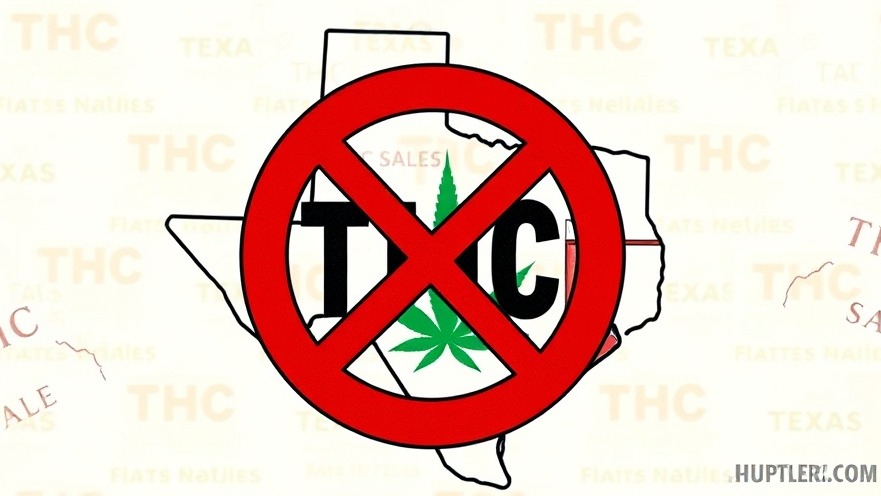
Texas Governor's Executive Order: A Response to Growing Concerns
In a move that affects young Texans, Governor Greg Abbott has officially issued an executive order prohibiting the sale of THC products to anyone under the age of 21. This strategic decision reflects not only changing state policies regarding cannabis but also heightened awareness around youth consumption and its implications for health and safety.
Understanding THC: What You Need to Know
Tetrahydrocannabinol (THC) is the psychoactive compound found in cannabis. As various states continue to liberalize their marijuana laws, this order serves as a reminder that Texas remains cautious in its approach to THC regulation. The implications for local businesses and healthcare providers in Austin could be significant, impacting both sales and community health initiatives aimed at addressing substance use disorders.
The Social Implications of the New Law
This legislation has stirred conversations about the cultural acceptance of cannabis use among different age groups. As public opinion evolves regarding such substances, the impact on youth behavior and public health is a central focus. Some argue that restricting THC access could prevent potential mental health issues among teenagers, while others express concerns about the stigmatization of responsible adult use.
Future Trends: Cannabis Laws in Texas
The future of cannabis legislation in Texas is uncertain, with potential for further reforms based on public sentiment and state legislative dynamics. With neighboring states moving towards legalization, how Texas navigates its cannabis policy could influence economic opportunities and healthcare outcomes in the region.
What This Means for Local Businesses
For businesses in the Austin area, this executive order could mean reallocating resources and adjusting marketing strategies. Local dispensaries might need to re-evaluate their customer base, while other retailers may benefit from an increase in sales as compliance with the law limits younger consumers’ access to THC products. Additionally, stakeholders need to consider the role of education and responsible consumption as part of their business practices.
Community Perspectives and Concerns
The conversation surrounding THC legality encompasses diverse perspectives. Advocacy groups and community leaders advocate for an evidence-based approach to youth substance use, emphasizing the need for programs that educate young people about the risks and benefits of THC in context. Balancing individual freedoms with the responsibility to protect public health remains a pivotal challenge for policymakers.
Take Action: Get Involved in Local Discussions
As Texans adjust to this new mandate, local residents are encouraged to participate in community discussions regarding the implications of THC regulation. Engaging with city councils, attending public forums, and voicing opinions can influence future decisions related to cannabis laws and public health strategies.
 Add Element
Add Element  Add Row
Add Row 



Write A Comment